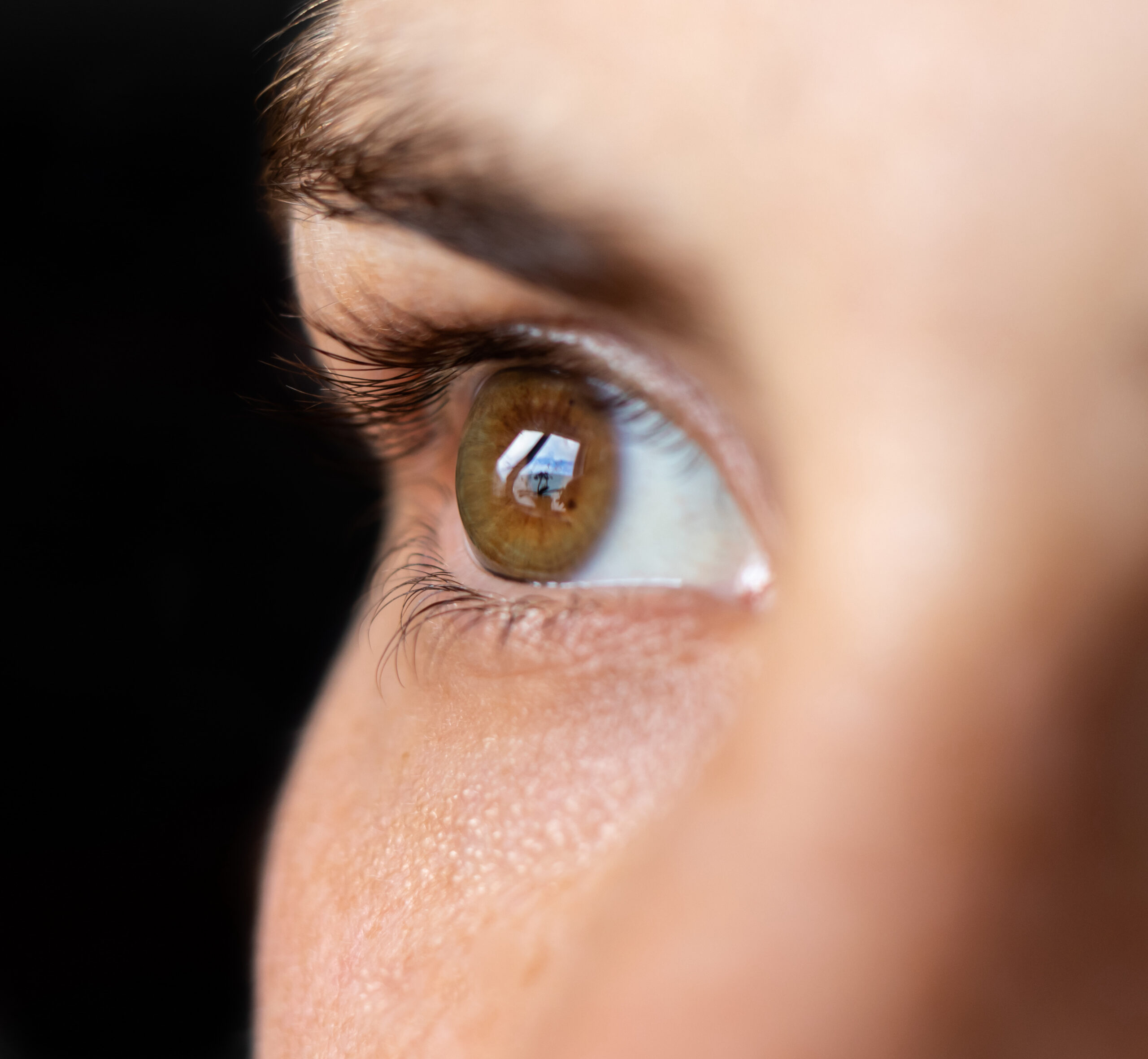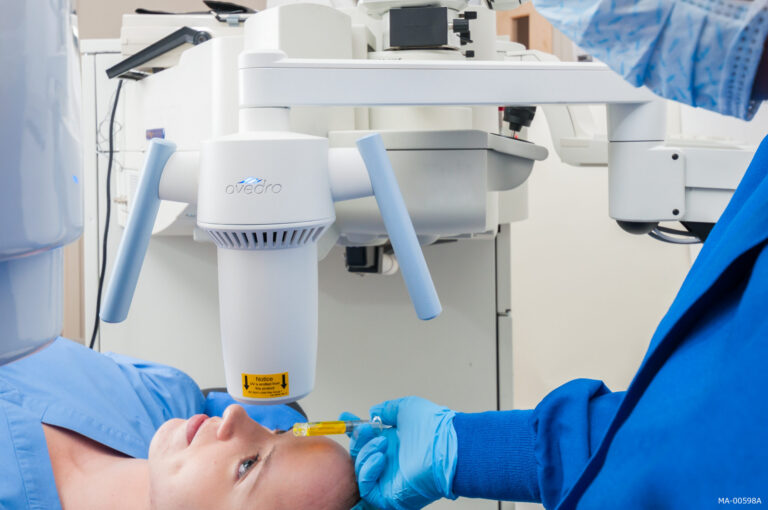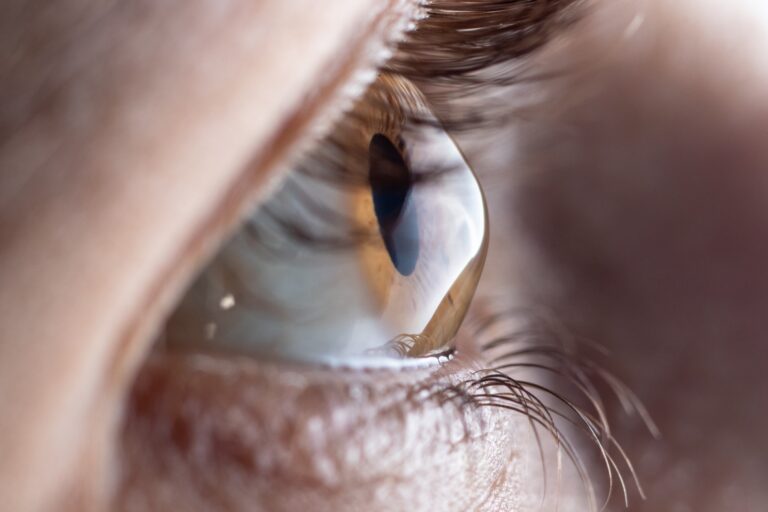
What is a Cornea Transplant?
A corneal transplant, also known as keratoplasty, can be performed to restore your vision, alleviate pain, and improve the overall appearance of your eye. The surgery involves replacing a diseased or damaged cornea with a healthy and clear donor graft. The surgery is safe and effective and is performed in a comfortable outpatient setting. At Ophthalmology Associates of the Valley in Encino and West Hills, Los Angeles, our ophthalmologists specialize in all aspects of corneal transplantation by applying the latest technology and micro-surgical techniques to optimize your vision outcome and recovery. Each transplant surgery is tailored to the specific needs of the patient.
What Are the Benefits of A Cornea Transplant?
Cornea transplant procedures at our office in Los Angeles, CA, restore vision and eye health for patients with damaged or diseased corneas. This advanced surgical technique offers life-changing benefits for clearer vision. Some of the benefits include:
Restores clear vision by replacing damaged corneal tissue
Improves overall eye health and function
Treats severe corneal diseases and injuries
Reduces pain caused by corneal damage
Long-term solution for corneal conditions
Am I a candidate for Corneal Transplant?
A wide range of corneal conditions can negatively impact the optical clarity of the cornea; thereby, impairing vision. A corneal transplant is typically performed for the following conditions when standard therapy has not worked:
Types of Corneal Transplants Offered
There are different types of corneal transplants available and the choices for surgery depend on the specific condition of the patient’s cornea:
Traditional Penetrating Keratoplasty (PKP)
PKP, also known as a full-thickness corneal transplant, is the treatment of choice for deep corneal scars or ectasia that cannot be corrected with glasses or special contact lenses. The surgery involves using an ultra-sharp circular trephine to create a precise circular incision that is matched by a correspondingly-sized donor cornea graft. The graft is then secured in place with tiny sutures, which are then carefully removed over a course of several months as the eye heals.
Deep Anterior Lamellar Keratoplasty (DALK)
DALK is a partial-thickness corneal transplant that involves removing the outermost later of the patient’s cornea, while preserving the crucial innermost layer called the endothelium. DALK is well-suited for patients with outer layer cornea diseases such as superficial scars or keratoconus. DALK has a much lower rejection risk compared to PKP because the patient’s endothelium is left untouched.
Descemet’s Stripping Endothelial Keratoplasty (DSEK)
DSEK is an ideal choice for patients with chronic corneal swelling or haze from endothelial disorders such as pseuodophakic bullous keratopathy or Fuch’s. The surgery involves removing the innermost layer, called the endothelium along with a thin layer of stroma. The donor graft is prepared as a preloaded tissue and is held in place with an air bubble tamponade. DSEK has a rejection risk of <2% and provides quicker vision recovery compared to PKP and DALK.
Descemet’s Membrane Endothelial Keratoplasty (DMEK)
DMEK is the newest evolution in the treatment of endothelial corneal diseases such as Fuch’s dystrophy, iridocorneal endothelial (ICE) syndrome, and complications from Herpes/Zosters/CMV endotheliitis. In DMEK, a pre-loaded ultra-thin donor graft is transplanted with the aid of a SF6 gas bubble. DMEK provides superior vision return, confers faster visual recovery when compared to the aforementioned keratoplasty techniques, and has <1% rejection rate.
In summary, corneal transplant is an effective treatment option for patients with corneal diseases. The procedure choice depends on the specific condition of the patient’s cornea and is best discussed with our experienced cornea specialists. With next-generation advancements and better understanding of the immune system, corneal transplant has become a highly successful and transformative surgery with excellent long-term vision outcome for patients.
How long is recovery for a corneal transplant?
Following surgery, each patient will receive detailed post-operative instructions to ensure that the transplanted eye heals correctly. An antibiotic eyedrop and an “anti-rejection” steroid eyedrop will be prescribed. At first, it may seem like the healing is slow, but you will have great, longterm results to anticipate as your ophthalmologist guides you through the recovery process. Depending on the type of corneal transplant performed, your vision recovery can be as short as 1-month or up to 1-year.
If a partial-thickness transplant (DSEK or DMEK) is performed, you should start noticing vision improvement in about 1-2 months. If a full-thickness transplant (PKP) is performed, vision recovery usually takes up to a 1 year, as the suture is carefully removed in the office. Most PKP patients will need glasses or contact lenses to optimize their vision potential.
Corneal Transplant FAQ
Discover Your Options
Cornea transplant surgery is an excellent treatment option that provides extremely high rates of success and effectively treats a variety of corneal problems and diseases. At Ophthalmology Associates of the Valley in San Fernando Valley of Los Angeles, CA, our skilled ophthalmologists are always abreast of the latest research and knowledge about corneal disorders and procedures.
We use complex techniques, such as DMEK, DSEK, and PKP to help you see better and improve your quality of life.
If you suffer from a decrease in eyesight, please call one of our locations in Los Angeles, CA to schedule a private consultation with one of our board-certified eye doctors.





